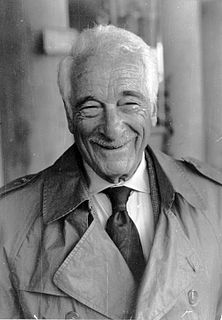A Quote by Johann Kaspar Lavater
He who always prefaces his tale with laughter, is poised between impertinence and folly.
Related Quotes
Life consists of sadness too. And sadness is also beautiful; it has its own depth, its own delicacy, its own deliciousness, its own taste. A man is poorer if he has not known sadness; he is impoverished, very much impoverished. His laughter will be shallow, his laughter will not have depth, because depth comes only through sadness. A man who knows sadness, if he laughs, his laughter will have depth. His laughter will have something of his sadness too, his laughter will be more colorful.
On the other hand, the pleasure caused by laughter, even on the stage, is not an unadulterated enjoyment; it is not a pleasure that is exclusively esthetic or altogether disinterested. It always implies a secret or unconscious intent, if not of each one of us, at all events of society as a whole. In laughter we always find an unavowed intention to humiliate, and consequently to correct our neighbour, if not in his will, at least in his deed.
A buddha laughs too, but his laughter has the quality of a smile. His laughter has the feminine quality of grace. When an ignorant person laughs, his laughter is very aggressive, egoistic. The ignorant person always laughs at others. The contented person, the person who knows life a little, laughs at himself - at the whole play of life itself. It is not addressed to anybody in particular. He just laughs at the absurdity of it all... the impossibility of it all.
As in 'The Three Billy Goats Gruff'?" The skull howled with laughter. "You just got your ass handed to you by a nursery tale?""I wouldn't say they handed me my ass," I said.Bob was nearly strangling on his laughter, and given that he had no lungs it seemed gratuitous somehow. "That's because you can't see yourself," he choked out. "Your nose is all swollen up and you've got two black eyes. You look like a raccoon. Holding a dislocated ass.
The artist usually sets out -- or used to -- to point a moral and adorn a tale. The tale, however, points the other way, as a rule. Two blankly opposing morals, the artist's and the tale's. Never trust the artist. Trust the tale. The proper functions of a critic is to save the tale from the artist who created it.






































